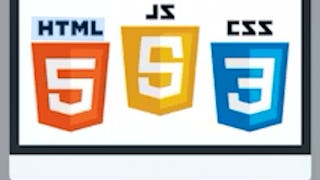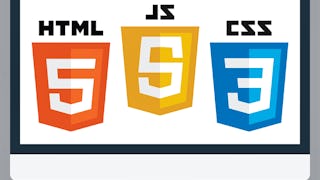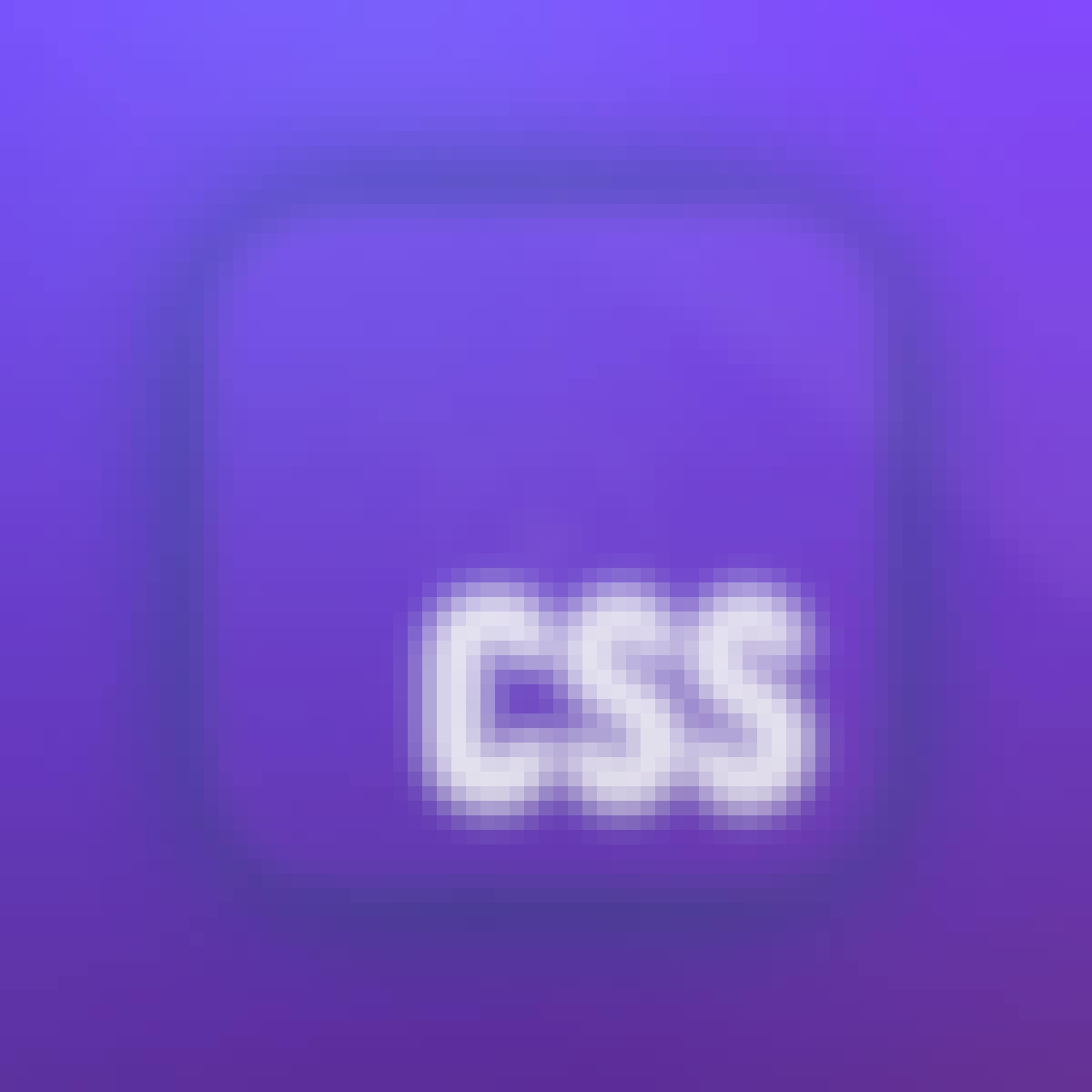Filter by
SubjectRequired
LanguageRequired
The language used throughout the course, in both instruction and assessments.
Learning ProductRequired
LevelRequired
DurationRequired
SkillsRequired
SubtitlesRequired
EducatorRequired
Explore the HTML CSS Course Catalog
 Status: Free Trial
Status: Free TrialSkills you'll gain: HTML and CSS, Bootstrap (Front-End Framework), Front-End Web Development, Responsive Web Design, Web Development, Web Design, Javascript, Web Applications, Scripting, Browser Compatibility, Application Programming Interface (API)
 Status: Free Trial
Status: Free TrialSkills you'll gain: Responsive Web Design, HTML and CSS, Bootstrap (Front-End Framework), Debugging, Front-End Web Development, Web Design, Semantic Web, Browser Compatibility, Web Content Accessibility Guidelines, User Interface (UI), Data Validation, Animations
 Status: Free Trial
Status: Free TrialJohns Hopkins University
Skills you'll gain: Cascading Style Sheets (CSS), HTML and CSS, Javascript, Ajax, Responsive Web Design, Bootstrap (Front-End Framework), Front-End Web Development, Web Design, Hypertext Markup Language (HTML), Web Design and Development, JSON, Web Applications, Web Development, Scripting, Usability, Cross Platform Development, Browser Compatibility, Object Oriented Programming (OOP), Event-Driven Programming, User Interface and User Experience (UI/UX) Design

Scrimba
Skills you'll gain: HTML and CSS, Responsive Web Design, Cascading Style Sheets (CSS), Hypertext Markup Language (HTML), File Management, Web Design, Front-End Web Development, Web Development

Coursera Project Network
Skills you'll gain: Cascading Style Sheets (CSS), Hypertext Markup Language (HTML), Web Development, HTML and CSS, Web Design and Development, Javascript, Front-End Web Development, Web Content, Web Design
 Status: Free Trial
Status: Free TrialJohns Hopkins University
Skills you'll gain: HTML and CSS, Javascript, Responsive Web Design, Ajax, Front-End Web Development, Web Design, Web Applications, Hypertext Markup Language (HTML), Browser Compatibility, Web Development, Cascading Style Sheets (CSS), Usability, Cross Platform Development
 Status: Free Trial
Status: Free TrialSkills you'll gain: HTML and CSS, Bootstrap (Front-End Framework), Responsive Web Design, Front-End Web Development, User Interface (UI), JavaScript Frameworks, Web Design and Development, Web Applications, React.js, Javascript
 Status: Free Trial
Status: Free TrialSkills you'll gain: Web Design and Development, Hypertext Markup Language (HTML), HTML and CSS, Web Development, Web Development Tools, Cascading Style Sheets (CSS), Front-End Web Development, Web Design, Javascript, Interactive Design, Web Applications, Full-Stack Web Development, Back-End Web Development
 Status: Free Trial
Status: Free TrialUniversity of Michigan
Skills you'll gain: Wireframing, Responsive Web Design, HTML and CSS, Web Content Accessibility Guidelines, Cascading Style Sheets (CSS), Web Design, Hypertext Markup Language (HTML), Browser Compatibility, Bootstrap (Front-End Framework), Javascript, Front-End Web Development, User Interface (UI), Web Development Tools, Verification And Validation, Interactive Design, Application Frameworks, Code Review, Web Design and Development, Event-Driven Programming, Usability
 Status: Free Trial
Status: Free TrialScrimba
Skills you'll gain: Responsive Web Design, HTML and CSS, Hypertext Markup Language (HTML), Cascading Style Sheets (CSS), Typography, Web Design, Web Development Tools, Browser Compatibility, Front-End Web Development, Web Development, Web Design and Development, Animations, UI Components, Development Environment, User Interface and User Experience (UI/UX) Design, Javascript, Maintainability, Interactive Design, Web Applications, GitHub
 Status: Free Trial
Status: Free TrialSkills you'll gain: Jest (JavaScript Testing Framework), Version Control, UI/UX Research, Usability Testing, Responsive Web Design, Data Structures, Unix Commands, HTML and CSS, Git (Version Control System), Persona (User Experience), GitHub, Interaction Design, User Experience Design, User Interface and User Experience (UI/UX) Design, Bootstrap (Front-End Framework), React.js, Mobile Development, Front-End Web Development, Algorithms, Javascript
 Status: New
Status: NewUniversity of Washington
Skills you'll gain: GitHub, Cascading Style Sheets (CSS), Hypertext Markup Language (HTML), Version Control, Git (Version Control System), HTML and CSS, Web Design and Development, Web Development, Front-End Web Development, Web Content Accessibility Guidelines, Cloud Hosting, Debugging, Semantic Web, Web Analytics and SEO, Responsive Web Design
In summary, here are 10 of our most popular html css courses
- Introduction to HTML, CSS, & JavaScript: IBM
- HTML and CSS in depth: Meta
- HTML, CSS, and Javascript for Web Developers: Johns Hopkins University
- HTML & CSS Crash Course: Scrimba
- Build a Portfolio Website with HTML, CSS, and JavaScript: Coursera Project Network
- HTML, CSS, and Javascript for Web Developers: Johns Hopkins University
- Introduction to Front-End Development: Meta
- Introduction to Web Development with HTML, CSS, JavaScript: IBM
- Web Design for Everybody: Basics of Web Development & Coding: University of Michigan
- CSS: Scrimba










